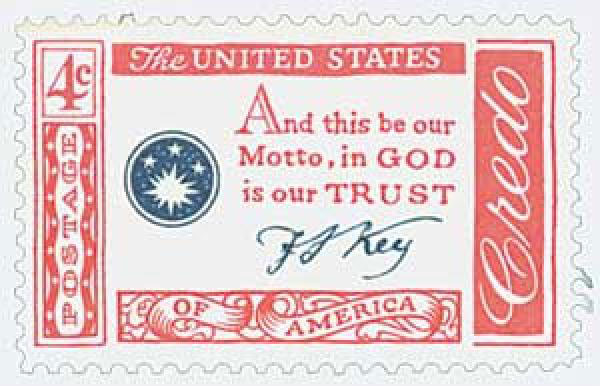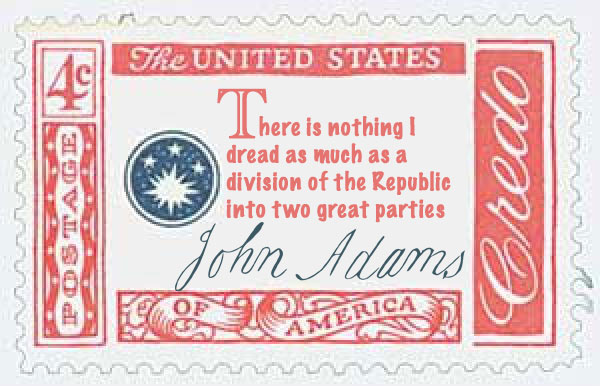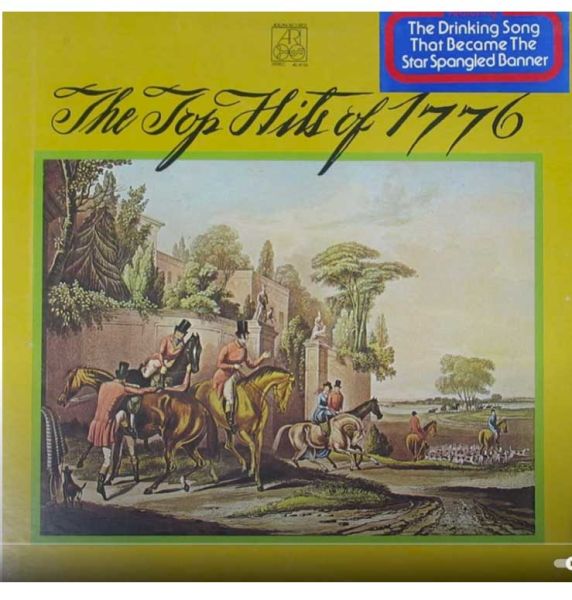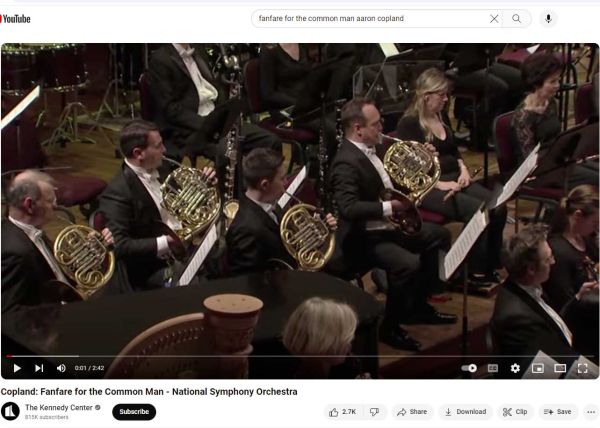Founding Father Credo: John Adams
When I think of the important persons who helped found our nation, who did the fighting to free the nation from the British, who studied the lessons of history in order to build a hugely successful land of opportunity, and undergird it with first-rate foundational documents, I do not think right away of Francis Scott Key. He played an important role aguing cases, including many before the Supreme Court, and functioned as a sort of attorney-general in the government of the young nation; but he did not fight in the Revolutionary War, draft the foundational documents, or attend the Constitutional Convention. The quote selected by the Post Office Department, like the others in the Credo series, does not reveal anything personal about him.

Key is best remembered as the composer of our national anthem, "The Star-Spangled Banner," but its role as national anthem stirred opposition from the start. Music arrangers complained that it was hard to sing. More seriously, Key apparently lifted the music from a contemporary British drinking song "To Anacreon in Heaven," composed by John Stafford Smith and published in 1771. If America has to find another anthem to take its place, I hope we can find something more stirring, like Aaron Copland's "Fanfare for the Common Man".
So I decided to omit Francis Scott Key entirely from the Credo series, and to replace him with John Adams. I do not understand why the Credo series did not include Adams, in the first place. He assumed from the start a position of leadership amongst the Founding Fathers. They referred to him as the "Atlas of Independence."
He recommended George Washington to command the Continental Army, he drafted the influential Massachusetts State Constitution of 1779, and lobbied tirelessly for the ratification of Thomas Jefferson's Declaration of Independence. He possessed a trenchant sense of humor and the soaring intellectuality of an auto-didact--qualities I admire in all of the Founders.
I looked up quotations by John Adams and found that he is not only learnéd and persuasive, he is also very quotable. In a letter to John Taylor, a Virginian planter, he wrote, "Democracy never lasts long. It soon wastes, exhausts, and murders itself. There was never a democracy that did not commit suicide", but his opinions clashed deeply with those of Taylor's friend Thomas Jefferson, who accused Adams of aristocratic allegiance. Jefferson wanted the United States to have more democracy. To think that Jefferson, a man of wealth who owned slaves, criticized John Adams, the son of a farmer and an abolitionist, as a monarchist, rankles me.
Above all, Adams favored constitutional law. He countered that the United States should have "a government of laws and not of men." He said, "If we cannot speak the law as it is, where is our liberty?"



